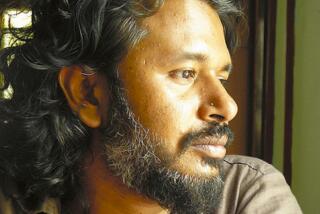‘ONLY MAN IS VILE’
- Share via
I would like to register my objections to Mark Fineman’s facile and unfair review of my book, “Only Man Is Vile: The Tragedy of Sri Lanka” (April 12). The review not only contains several factual inaccuracies, it also repeatedly quotes me out of context and ignores the book’s primary themes.
Fineman suggests, for instance, that I let international aid officials off easy when I relate how they are unable or unwilling to talk about the role that social and cultural factors play in thwarting Sri Lanka’s development efforts. Yet Fineman does not explain that their reluctance to speak was described to imply a larger point: that bureaucratic imperatives keep most of them either ignorant of such things or afraid to discuss them.
Fineman’s review also manifests a startling lack of appreciation for nuance, underlined by his contention that I showed a “personal fascination” with the foreign correspondents I encountered in Sri Lanka and that they are the book’s “most intriguing and best-developed characters.” This is quite amusing, since the chapter in which most of these correspondents are encountered is a clear tribute to “Scoop,” Evelyn Waugh’s biting parody of war reporters.
Of course Fineman, assigned to the South Asia beat after I left Sri Lanka, was not part of the media circus I describe in that chapter. And too bad for that! To see fascination in what is clearly ironic dismay is pretty obtuse, not to mention vain. His presence might have made rich material even richer.
The most unfortunate thing about Fineman’s review, though, is his complete failure to engage the book’s primary themes. One of the book’s four parts is devoted to an involved discussion of Sinhalese Buddhist nationalism, its historical roots under British colonialism and the destruction it wreaked on the country after Independence by inciting a poisonous politics of cultural identity. It is in this section that I examine the root causes of the war in full.
Whether my treatment of this material is worthy or not is subject to critical evaluation, of course. But to ignore this dimension of the book, beyond a passing nod to the flap copy, is suspicious. It suggests that Fineman either did not spend the time with the book he should have, or was too preocuppied with making a case against the book’s “superficiality” to see that the things he claims are missing were explored in full scholarly journalistic depth right before his eyes.
WILLIAM McGOWAN, NEW YORK CITY
More to Read
Sign up for our Book Club newsletter
Get the latest news, events and more from the Los Angeles Times Book Club, and help us get L.A. reading and talking.
You may occasionally receive promotional content from the Los Angeles Times.









